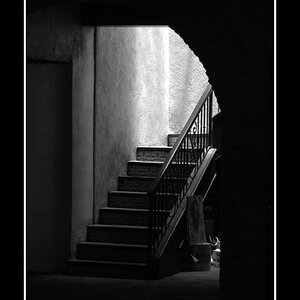cherylynne1
No longer a newbie, moving up!
- Joined
- Dec 8, 2015
- Messages
- 663
- Reaction score
- 254
- Website
- www.flickr.com
- Can others edit my Photos
- Photos OK to edit
Here's a question about the overexposure, since it seems to be a universal theme: Is it possible that I've developed this issue because I'm not printing with a professional printer?
I used to edit the photos until I thought they looked good, but then when I had them printed at Costco they would come out incredibly dark and muddy. The advice I was given at the time was to turn down the brightness of my monitor. I did that, and ever since what I see on the screen is very close to what I see printed (though still slightly darker.) My pictures do look too bright if I view them on my phone or tablet, but I always thought that was because those screens weren't calibrated. I do deliberately push pictures just beyond where I think they should be because I know that when they're printed, they'll be right. But if you all have calibrated monitors and it still looks too bright, could it be because I'm "calibrating" to an overly dark printer?
And Derrel, I actually never considered that about the Strobist or Joe McNally, but you're right on both counts. But the best thing they did for me was show that there is something beyond the "all natural light" photography that's being pushed so hard on the beginner's blogs. It seems there are so many people teaching photography that it's really hard to find trustworthy sources.
Anyway, thanks. I guess I thought I was a step above the people that got a DSLR for Christmas and a wedding booked for January 1st, but to pros it seems there isn't really a difference between us. It's disheartening, but maybe it's best to just stick to pictures of my own kids.
I used to edit the photos until I thought they looked good, but then when I had them printed at Costco they would come out incredibly dark and muddy. The advice I was given at the time was to turn down the brightness of my monitor. I did that, and ever since what I see on the screen is very close to what I see printed (though still slightly darker.) My pictures do look too bright if I view them on my phone or tablet, but I always thought that was because those screens weren't calibrated. I do deliberately push pictures just beyond where I think they should be because I know that when they're printed, they'll be right. But if you all have calibrated monitors and it still looks too bright, could it be because I'm "calibrating" to an overly dark printer?
And Derrel, I actually never considered that about the Strobist or Joe McNally, but you're right on both counts. But the best thing they did for me was show that there is something beyond the "all natural light" photography that's being pushed so hard on the beginner's blogs. It seems there are so many people teaching photography that it's really hard to find trustworthy sources.
Anyway, thanks. I guess I thought I was a step above the people that got a DSLR for Christmas and a wedding booked for January 1st, but to pros it seems there isn't really a difference between us. It's disheartening, but maybe it's best to just stick to pictures of my own kids.




![[No title]](/data/xfmg/thumbnail/38/38294-cb4a5aa0ded725d4c694e6eebe276f0d.jpg?1619738564)


![[No title]](/data/xfmg/thumbnail/42/42461-e2a94a39b9483a804af86010fc52244b.jpg?1619740192)





